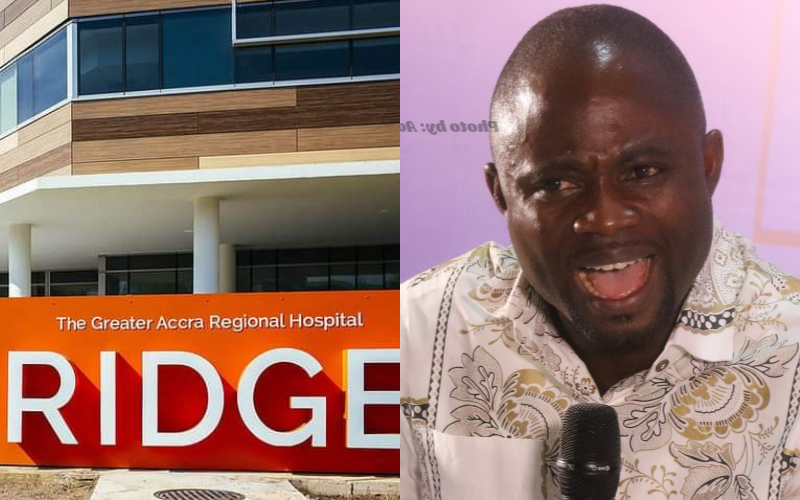The Greater Accra Regional Hospital, once a beacon of modern healthcare in Ghana, now finds itself in a distressing state of disrepair. Kwabena Mintah Akandoh, the Minister of Health, recently voiced his deep concerns regarding the hospital’s decline, noting the stark contrast between its current condition and the state-of-the-art facility it once was during the Mahama administration. His assessment, following a visit to the hospital, revealed a troubling picture of malfunctioning critical equipment, including the MRI and CT scan machines, highlighting a significant deterioration in the hospital’s ability to provide essential diagnostic services. This decline raises serious questions about the management and maintenance practices employed at the hospital and the broader issue of equipment upkeep within Ghana’s healthcare system.
The Minister’s observations extend beyond simply acknowledging the broken equipment; they delve into the systemic issue of funding and responsibility for maintaining hospital infrastructure. He questioned the prevailing expectation that the government should perpetually bear the financial burden of replacing and maintaining equipment, especially when hospitals generate revenue through the usage of these very machines. This raises a crucial point about the financial sustainability of Ghana’s healthcare system and the need for hospitals to take greater ownership of their operational costs. The current model, where hospitals seemingly rely on government intervention for equipment replacement, appears unsustainable in the long run and necessitates a shift towards greater financial accountability and self-sufficiency within individual healthcare institutions.
Furthermore, the Minister’s visit followed a damning report by ModernGhana News, which exposed an alleged web of corruption, mismanagement, and procurement breaches within the hospital’s administration. This report details a potentially orchestrated scheme involving hospital officials, former government appointees, and figures at the Ghana Health Service headquarters. The allegations suggest that millions of cedis have been misappropriated through fraudulent contracts, effectively starving the hospital of vital resources and directly impacting the quality of patient care. This alleged financial misconduct underscores the urgency of addressing not only the physical deterioration of the hospital but also the deeper, systemic issues of governance and accountability.
The combination of failing equipment and alleged financial impropriety paints a bleak picture of the current state of the Greater Accra Regional Hospital. The once-celebrated facility, intended to be a flagship institution for modern healthcare delivery, now faces a crisis of functionality and public trust. The Minister’s concerns, coupled with the investigative report, highlight the need for a comprehensive investigation into the hospital’s operations and finances. This investigation should aim to identify the root causes of the decline, hold those responsible for mismanagement accountable, and implement effective measures to prevent similar occurrences in the future.
Rehabilitating the Greater Accra Regional Hospital requires a multi-pronged approach. Firstly, addressing the immediate needs of the hospital by repairing or replacing essential equipment is paramount. Restoring the functionality of critical diagnostic tools like the MRI and CT scan machines is crucial for ensuring that patients receive timely and accurate diagnoses. Secondly, a thorough review of the hospital’s financial management practices is necessary to plug any loopholes that facilitate corruption and mismanagement. This should include strengthening internal controls, enhancing transparency in procurement processes, and establishing clear lines of accountability for financial decisions.
Ultimately, the long-term sustainability of the Greater Accra Regional Hospital, and indeed the entire Ghanaian healthcare system, hinges on establishing a sustainable funding model. The Minister’s questioning of the government’s perpetual responsibility for equipment maintenance points to the need for a broader discussion about healthcare financing. Exploring alternative funding mechanisms, promoting greater financial autonomy for hospitals, and encouraging private sector investment could be avenues to explore. This would not only alleviate the burden on the government but also empower hospitals to manage their resources more effectively and ensure the long-term viability of quality healthcare delivery. The current situation at the Greater Accra Regional Hospital serves as a stark reminder of the importance of good governance, financial accountability, and sustainable resource management in safeguarding the health and well-being of the Ghanaian people.














